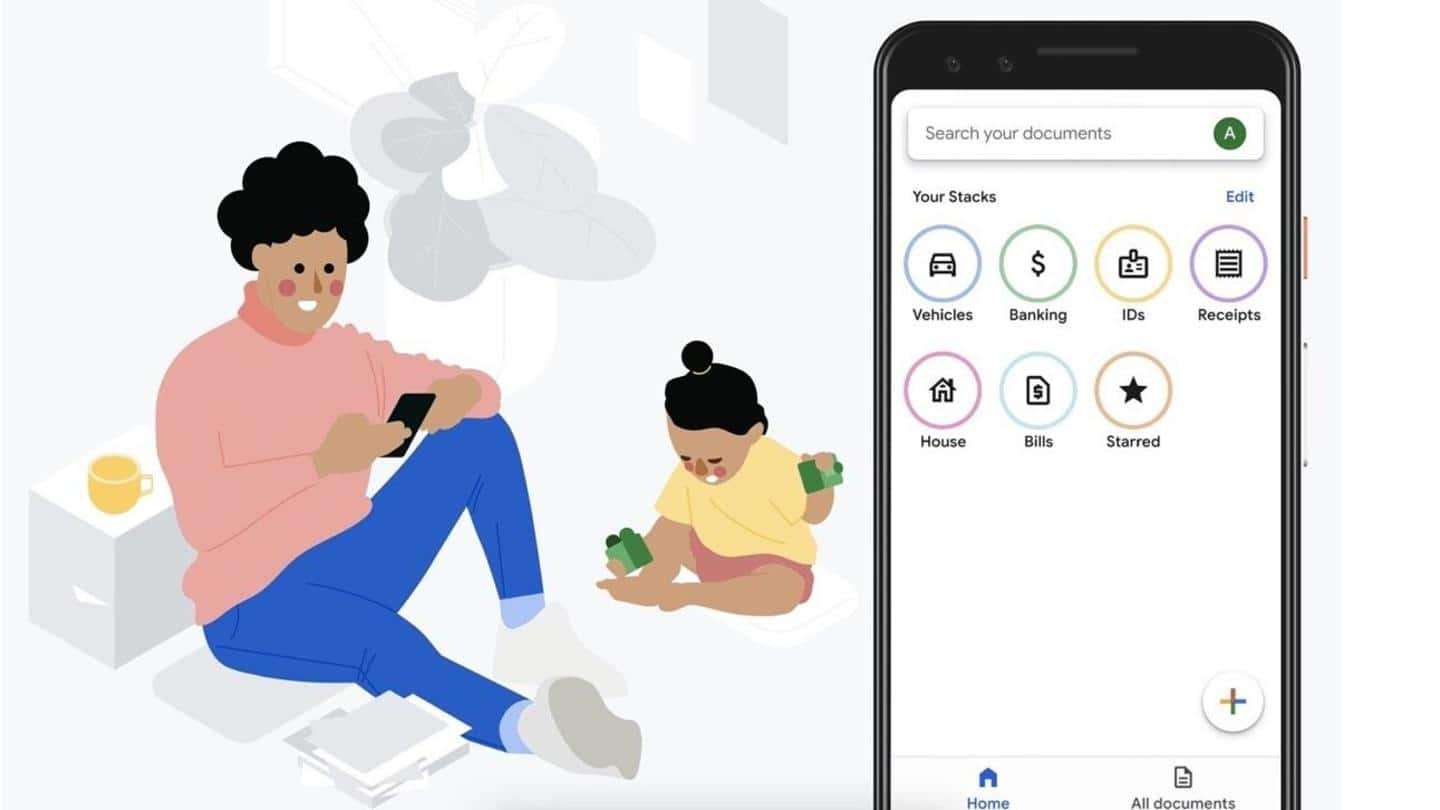
Stack: Google's experimental AI-powered app for scanning and categorizing documents
What's the story
Google's in-house idea incubator, dubbed Area 120, has released a new app called Stack. The document analysis and segregation tool is available only as an Android app in the US for the time being.
Using your phone's camera, Stack scans your receipts and documents as PDFs. It then automatically names and organizes them into categories based on the content of the scanned document.
Integration
Stack relies on Google's Enterprise-grade Document AI technology
The Stack app borrows its underlying technology from Google's enterprise tool for document analysis called Document AI (Artificial Intelligence). Google says Stack is a huge improvement over any similar document scanner.
For starters, Stack backs up scanned documents to Google Drive. When searching for a document, Stack looks up the search keyword against every word in each document, making it easier to find the document.
Details
Stack uses AI to extract crucial information from scanned documents
The Stack app reportedly features biometric authentication (face unlock or fingerprint unlock) to protect the scanned documents.
Additionally, the app automatically creates fields such as "due date" for scanned bills which must be paid.
Stack's AI-enabled document scanning is capable of extracting important information from documents such as receipt date and amount paid from a retail store invoice.
Information
Here's what Stack is actually doing to scan documents
Stack essentially leverages Optical Character Recognition (OCR) to "read" the text content of scanned documents. It then uses AI to interpret it, prioritize information, and display key takeaways such as dates, amounts, names, and contact numbers. OCR technology works by recognizing patterns in printed text.
Team behind Stack
Christopher Pedregal developed Stack after Google acquired his start-up
In a statement, Stack's team lead Christopher Pedregal said that at his education start-up called Socratic, Google's computer vision and language understanding was used to simplify learning for high-schoolers.
Following Google's 2018 acquisition of Socratic, Pedregal and his colleague Matthew Cowan joined Area 120 to develop Stack.
While the initiative is unique, Area 120 may shelve the idea if it lacks financial viability.
Mixed feedback
Stack could blur the distinction between physical and electronic documents
Although Stack could be useful in real-world situations, feedback indicated that people don't want to let Google's AI in on their preferred brand of clothing or what their physical documents discuss.
Nevertheless, Stack could blur the distinction between physical and electronic documents, making the former easier to share and look up digitally, if the idea isn't prematurely shelved by Area 120.